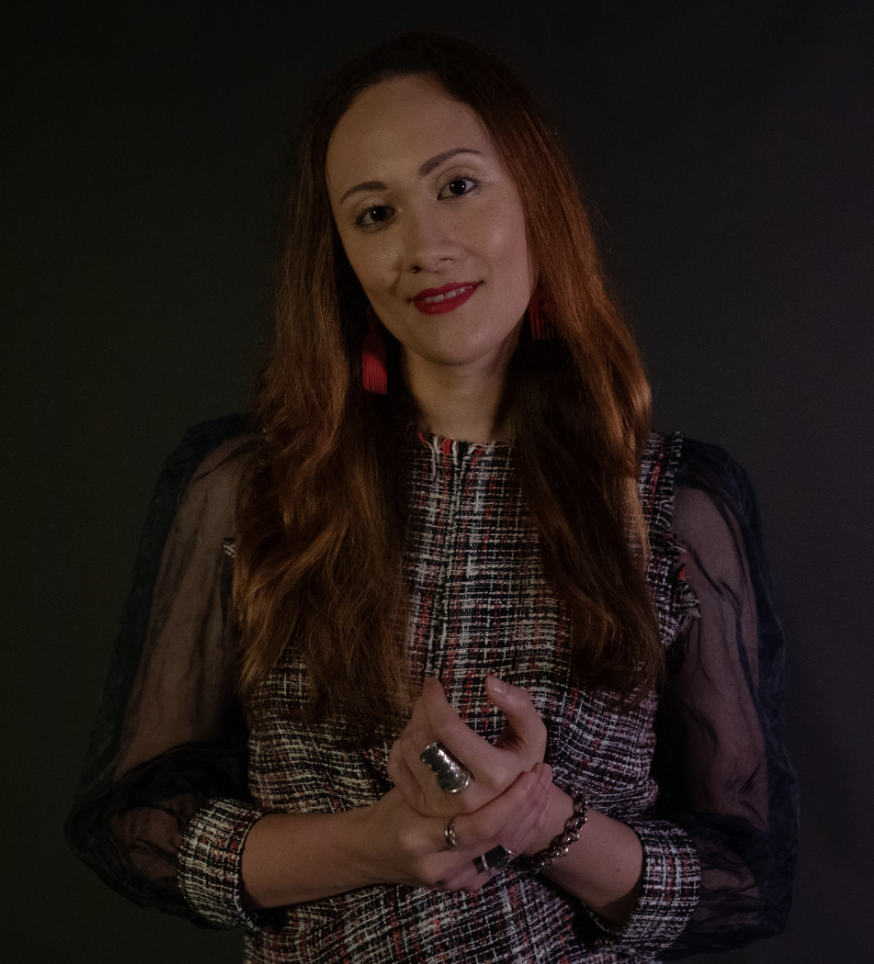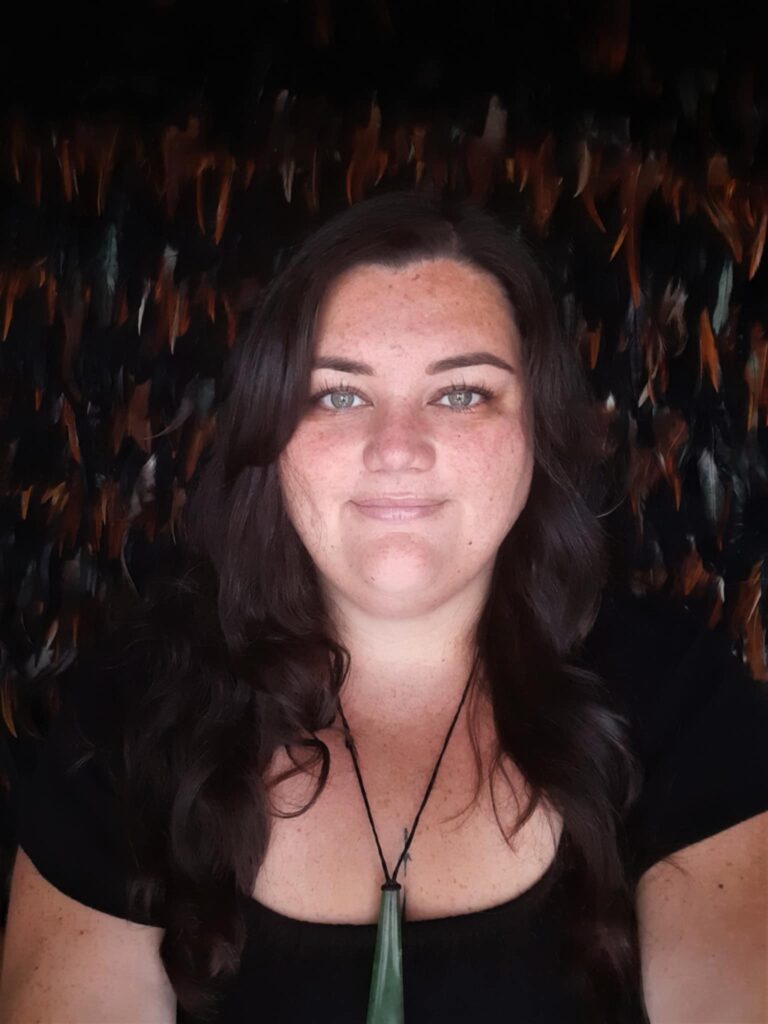Winner of the 2025 Tracey Banivanua Mar PhD Prize and two highly commended awardees announced
AAPS is thrilled to announce the recipient of the 2025 Tracey Banivanua Mar PhD Prize! After reviewing an impressive array of submissions, we are proud to congratulate Dr Adriana Māhanga Lear, winner of this year’s prestigious award. We also extend our congratulations to Dr Ashlea Gillon and Dr Josephine Goldman, who have been recognised as Highly Commended for their outstanding work. A special thank you to our judging panel of AAPS members, Dr Melinda Mann and Dr Nicholas Hoare, for their thoughtful and rigorous assessment of the work.
Scroll down to read the judges’ citations and learn more about the winner and awardees.
Winner: Ongo (Sounding/Hearing/Feeling), Mate (Death), Fonua (People and Place) and Tā-Vā (Time-Space): New Foundations for Tongan Music Composition, Performance and Sound Art
Dr Adriana Māhanga Lear’s ‘Ongo (Sounding/Hearing/Feeling), Mate (Death), Fonua (People and Place) and Tā-Vā (Time-Space): New Foundations for Tongan Music Composition, Performance and Sound Art’ is a sophisticated body of work that extends confidently across the domains of musical analysis, Indigenous talanoa, composition, performance, sound and visual installation. The judges praised it as richly Indigenous in its theorising, reclaiming and ‘resounding’ aesthetic concepts and practices of faiva fasi including ongo fa’ahikehe (the sound of the dead or ancestral sound) and tu’akautā (to beat outside, behind or beyond the beat). The judges also applauded the strong grounding of the work in Tongan language. Lear draws on her own training in the dominant traditions of ethnomusicology in order to critically engage that very same tradition, and its Euro-centric rendering of Tongan music. In challenging colonial modes of listening, Lear offers a powerful ‘sounding back’ of Tongan knowledge and musical practice, embodying the Moana-Oceanic invocation to walk forward into the past.

Pā’utu-‘o-Vava’u-Lahi, Dr Adriana Māhanga Lear (she/they) is an artist and researcher in Pacific arts, decolonial studies, Indigenous sound studies, and (ethno)musicology. Adriana’s work reclaims Indigenous Tongan ontologies and epistemologies of faiva fasi (performance art of music), which challenge existing Eurocentric and heteropatriarchal impositions. Adriana has developed new theoretical and methodological foundations for Tongan and broader Indigenous music and sound studies. These developments, supported by Adriana’s scholarship, have advanced the Indigenous Tongan Tā-Vā (Time-Space) Philosophy of Art (and of Reality). As an artist, Adriana works across sound, music, photography, print, video, sculpture, and installation, and is also a musician and composer/producer. Her work is held in collections including Sydney Powerhouse Museum, and has been exhibited in Australia and Aotearoa NZ, with an upcoming showcase in Hawai’i. Adriana holds ancestral ties to Tu’anuku, Vava’u and Vaipoa, Niuatoputapu, and was raised on unceded Dharrawal, Yuin and Wodi Wodi Country (Wollongong, NSW).
Highly Commended: Hinenuitepō, Nui Te Ao Mana Tinana, Mana Mōmona: A Fat Wāhine Māori Pūrākau of Body Sovereignty
Dr Ashlea Gillon’s ‘Hinenuitepō, Nui Te Ao Mana Tinana, Mana Mōmona: A Fat Wāhine Māori Pūrākau of Body Sovereignty’ is a captivating, staunch exploration of the experiences of fat Wāhine Māori and the liberatory possibilities of decolonial body sovereignty. This is a work of rich self-expression as well as of community, one that is consistently grounded in Kaupapa Māori epistemology and that centres Te Reo. Gillon illuminates the devastating ways in which fatism, sexism and racism intersect to ‘re-present, re-name and re-shape Wāhine Māori’, as well as the creative and empowered ways in which Wāhine Māori resist these forces. The judges relished the humour, irreverence, joyfulness and defiance in the text, which enacts the very freedom it describes and calls for. This is important storytelling that deserves to be read widely.

Ko Ngāti Awa, Ngāpuhi, Ngāiterangi ngā iwi. Ashlea Gillon Aramoana is a Kaupapa Māori critical transdisciplinary researcher, educator, and storyteller. She is a recent Fulbright Graduate who was based in Native Hawaiian and Indigenous Health at the University of Hawai’i at Mānoa. Currently Ashlea is a lecturer in Māori Studies at Waipapa Taumata Rau University of Auckland and an HRC Emerging First Researcher Grant holder. Ashlea graduated with her PhD in May 2025 and is interestes in Māori and Indigenous health, Indigenous fat studies and fat liberation, ethnicity and identity, racism and privilege, equity, Indigenous studies, theories, and methodologies.
Highly Commended: Diving into Heavy Waters: Water and Gender in Contemporary Francophone Caribbean and Oceanian Art and Literature
Dr Josephine Goldman’s ‘Diving into Heavy Waters: Water and Gender in Contemporary Francophone Caribbean and Oceanian Art and Literature’ offers a nuanced analysis of water as a medium of memory, creativity and future-oriented practice across diverse Oceanic worlds. Goldman’s work in forging new comparisons and connections between Pacific and Caribbean people, waters, places and literatures, exemplifies the values of an expansive Pacific studies. The judges were drawn particularly to the dialogue that this thesis develops between the works of Epeli Hau’ofa and Édouard Glissant, and to Goldman’s mastery of the French language which enables a rich attention to diverse Pacific experience. The judges also highlighted Goldman’s challenge to dominant modes and models of history, a challenge resonant with Tracey Banivanua Mar’s own scholarship. They agreed that Goldman’s careful, rigorous work sets a standard for non-Indigenous, decolonial scholarship.

Dr Josephine Goldman (she/her) is an early-career researcher and sessional academic at the University of Sydney. Her research in francophone Oceanian and Caribbean literatures and art focuses on remapping time and space through water, and more recently, sound. She is co-founder of the ESTUARY: A Harbour for Salt and Fresh Water Studies, a transnational multidisciplinary network of water studies scholars across the arts, humanities and social sciences, and the co-host of “Positionalities: The Women in French International Podcast”.
